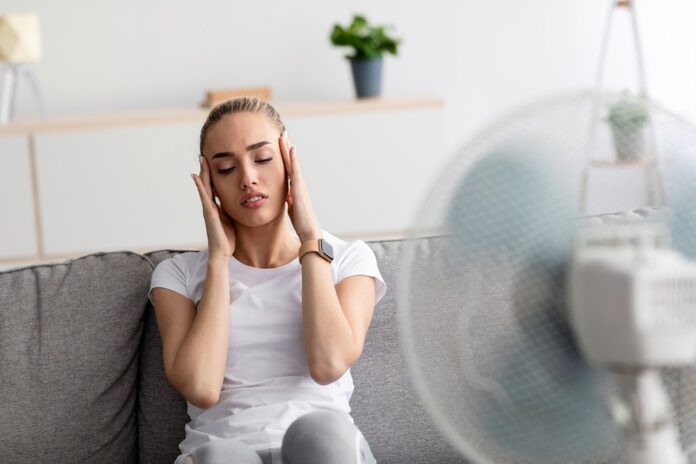Have you been feeling “off” lately, but you can’t quite put your finger on what’s wrong? It might be your hormones. Hormones are incredibly important for regulating how our bodies function and feel, but even slight imbalances can have huge effects. Luckily, there are usually warning signs that your hormones are out of wack before things get too serious. In this post, we’ll cover some common signs and how you can take steps to rebalance your hormones and get back to feeling your best. Let’s get started!
Fatigue
Are you feeling tired all the time, even if you’ve been getting plenty of sleep? Fatigue is a common sign of a hormone imbalance, especially if you’ve ruled out other possible causes. Cortisol—the “stress hormone”—is often the culprit here. If you’re dealing with chronic stress, your cortisol levels can become disrupted, and you may experience intense fatigue even if you’re not doing much physically. Reducing stress through things like meditation, exercise, and self-care can help bring cortisol levels back into balance.
If you’re concerned about your cortisol levels, don’t worry! Cortisol can be measured with a simple blood test. This is often done in the morning as cortisol levels are typically highest at this time. A saliva test can also be done to measure cortisol levels throughout the day, providing a more accurate picture of how your levels fluctuate. If you suspect that your fatigue may be due to imbalanced cortisol levels, it’s important to speak with your doctor and get tested. From there, appropriate treatment can be determined.
Mood Swings
Hormones play a big role in regulating our moods, so it’s not surprising that mood swings can be a sign of hormonal imbalance. This can be especially true for women who are dealing with PMS or menopause. If you’re finding that your moods are all over the place or you’re feeling more anxious or depressed than usual, it may be worth speaking to your doctor. They might recommend things like hormone replacement therapy or other treatments to help stabilize your mood.
While mood swings can be a sign of hormonal imbalance, don’t forget to rule out other factors as well. Things like stress, lack of sleep, and nutrition can all play a role in our moods. If you’re experiencing mood swings, keep track of your daily routine and see if there are any patterns or triggers that could be causing them. Additionally, speaking with a therapist or counselor can also help you identify any underlying emotional issues that may be contributing to your mood swings.
Irregular Periods
For women, menstrual cycles can be a strong indicator of hormone imbalances. If your periods have become irregular or you’re experiencing other changes such as heavier or lighter flows, it could be a sign that your hormones are off-balance. In some cases, this may be due to conditions such as polycystic ovary syndrome (PCOS) or thyroid disorders. It’s important to speak with your doctor if you’re experiencing irregular periods, as they can help identify the underlying cause and recommend appropriate treatment.
Weight Gain
If you’ve been eating healthily and staying active, but you’re still putting on weight, hormones could be to blame. Specifically, imbalances in insulin, cortisol, and estrogen can all lead to weight gain. If you’ve noticed a gradual increase in your weight over time, it may be worth getting bloodwork done to check your hormone levels. From there, your doctor can recommend a personalized plan to help you rebalance your hormones and shed those extra pounds.
If you suspect that your hormones are out of wack, the first step is to schedule an appointment with your primary care physician. They can help you determine if a hormone imbalance may be causing your symptoms and refer you to a specialist if needed. Depending on your specific needs, they may recommend seeing an endocrinologist, gynecologist, or other functional medicine healthcare professional who specializes in hormones.
Low Libido
Hormones also play a huge role in our sexual health, so low libido can be a sign that something is off. Both men and women can be affected by hormone imbalances that cause low sex drive. For men, low testosterone levels can be a primary cause, while women may be dealing with imbalances in estrogen or other hormones. Speaking to a healthcare professional about your concerns is the first step in identifying and addressing any hormone-related issues that might be impacting your libido.
Skin Issues
Your skin can be a major indicator of hormone imbalances. Conditions like acne, rosacea, and eczema can all be driven by changes in hormone levels. If you’ve tried various skincare treatments without much success, it might be worth looking into whether hormones could be to blame. A dermatologist can recommend tests and treatments to address the root cause of your skin concerns and help you achieve clearer, healthier skin.
Skin problems can be alarming, but it’s important not to panic. Acne and eczema are two skin conditions that can often be confused for one another. However, there are some key differences between the two that can help you tell them apart. Acne is typically characterized by clogged pores, whiteheads, blackheads, and pimples on the face, chest, or back. It is often caused by excess oil production and bacteria on the skin. On the other hand, eczema is a chronic condition that causes red, itchy patches of skin and can appear anywhere on the body. It is often triggered by environmental factors or allergies. If you are unsure about your skin condition, it’s always best to consult with a dermatologist for an accurate diagnosis and proper treatment plan.
Hormones are complex, powerful molecules that play a huge role in determining how we feel and function. But imbalances can have a range of unpleasant effects, from fatigue and weight gain to mood swings and low libido. If you’ve been experiencing any of the signs we’ve covered here, don’t ignore them. Speak to a healthcare professional about your concerns and get on the path to rebalancing your hormones and feeling your best. With a bit of time and effort, you can take control of your health and ensure that your hormones are working for you, not against you.















